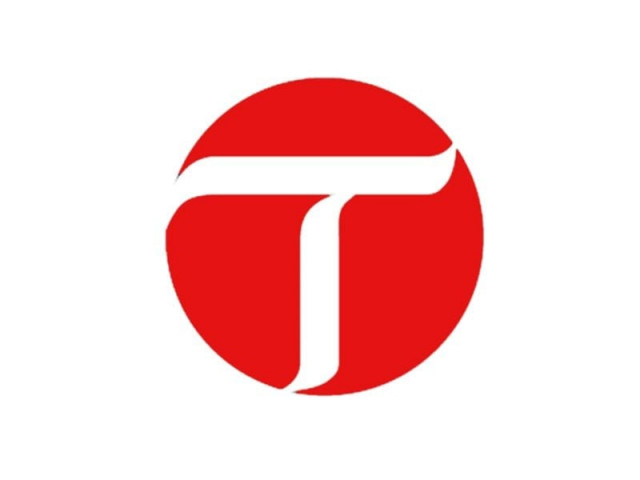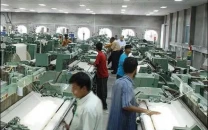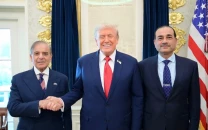TRG's legal battle with ex-CEO imperils export giant's future
Dispute over control, offshore assets and misconduct allegations clouds future of $100m tech exporter

Headlines about the legal battles between software services exporter TRG and its former CEO have raised questions about the fate of a company contributing over $100 million annually to Pakistan's fragile exports.
Founded in 2003 by Pakistani-Americans Hasnain Aslam, Mohammed Khaishgi, and Muhammad Ziaullah Khan, TRG began as an investment holding company with stakes in US-based ventures. Through TRG Pakistan, the group raised $60 million of its $100 million initial capital locally, giving the country a foothold in global outsourcing.
From the start, TRG focused on outsourced customer care solutions, scaling rapidly. By 2016, its firms employed 15,000 worldwide, including 4,000 in Pakistan. Yet profitability remained elusive, and valuations barely exceeded capital deployed.
Afiniti's rise and risk
One of TRG's boldest bets was Afiniti, a predictive AI firm for call centres. TRG invested $50 million, while global investors contributed more. In 2016, the ex-CEO shifted focus to Afiniti, while Aslam and Khaishgi managed the remaining portfolio.
Their strategy paid off. In 2020, TRG's IBEX was listed on NASDAQ, and in 2021, eTelequote was sold to a US giant. These exits delivered $500 million to shareholders, a tenfold return. Global headcount rose to 35,000, including 10,000 in Pakistan.
Afiniti expanded rapidly but piled up $500 million in debt by 2021, with no cash returns for TRG shareholders.
Misconduct allegations
That year, a US Congressional hearing revealed that the former CEO had been found liable in arbitration for sexual harassment, assault, and battery. The revelation triggered an immediate crisis as clients and investors demanded his exit. He resigned from Afiniti and TRG.
The arbitration award detailed damages of over $5 million and helped spur new US workplace laws. The ex-CEO denied wrongdoing, calling it a smear campaign, and filed defamation suits. His US case was dismissed, while a UK suit against the Telegraph ended in settlement. In Pakistan, his case against TRG's board remains suspended in higher courts.
The management worked to shield assets while navigating shifts in outsourcing markets. Generative AI hit valuations, but IBEX tripled in value. Afiniti restructured debt in 2024, halving senior loans. Lenders assumed control, but TRG retained majority diluted equity.
Legal battlefield
Over 30 lawsuits now span Pakistan, Bermuda, and the US. Current management, backed by institutional investors, is locked against the ex-CEO, reportedly supported by a Karachi-based brokerage. At stake are offshore liquid assets worth hundreds of millions of dollars.
Since 2021, TRG has remitted funds to local shareholders via Greentree Holdings, returning nearly $100 million by end-2022, about 30% of offshore assets. The ex-CEO has challenged the programme, while TRG alleges his 2022 share purchases were unlawful.
Analysts argue TRG's future depends on ending the dispute. With proven 10x returns under Aslam and Khaishgi, they believe value could rise fivefold, lifting shares above Rs300. The company will achieve its full potential once the possibility of the ex-CEO’s involvement is removed, given reputational risks in global markets.
Speaking to The Express Tribune, the ex-CEO argued that Aslam and Khaishgi were employees with minimal shares, while his family owned 28%. After his exit, they took leadership and allegedly used Greentree to buy shares worth $150 million to secure majority control.
He claimed TRG's value fell from $2 billion to $150 million under the current leadership, with shares dropping from Rs180 in 2020 to Rs81.84 in 2025. He accused them of delaying board elections and losing shareholder value.
He insisted he was vindicated internationally, pointing to a Telegraph apology and claiming restrictions on only 9% of his shares. He argued Afiniti's workforce had shrunk from 1,700 to 600 and TRG's call centres from 10,000 to 8,000 in Pakistan, with new hires shifting to India.
"I started TRG in 2002 with $20 million of my own money," he said. "They did not contribute from their own pockets."
Aslam and Khaishgi disputed the characterisation of their former partner/CEO and said: "The three of us co-founded TRG with equal ownership in 2002. The former CEO's resignation from TRG and Afiniti had nothing to do with us and was a result of the congressional testimony that disclosed the presence of an arbitration award against him for sexual misconduct."
They further clarified that under the former CEO, TRG Pakistan share price languished for over 16 years with an IPO in 2003 at Rs10, reaching a low of Rs1.10 and trading as low as Rs11.56 in 2020, but only reaching new highs in 2021 after they led the IPO of Ibex in August 2020 on Nasdaq and the sale of e-TeleQuote in the US in 2021.
They said their employment in Pakistan is at an all-time high now, with new international clients being serviced out of Pakistan, and Ibex's earnings per share and stock price tripling since the departure of the former CEO.
The next Supreme Court hearing is set for September 24, a date that could decide TRG's future.





1726134115-0/BeFunk_-(41)1726134115-0-208x130.webp)

1728020501-0/Express-Tribune-Web-(13)1728020501-0-208x130.webp)














COMMENTS
Comments are moderated and generally will be posted if they are on-topic and not abusive.
For more information, please see our Comments FAQ